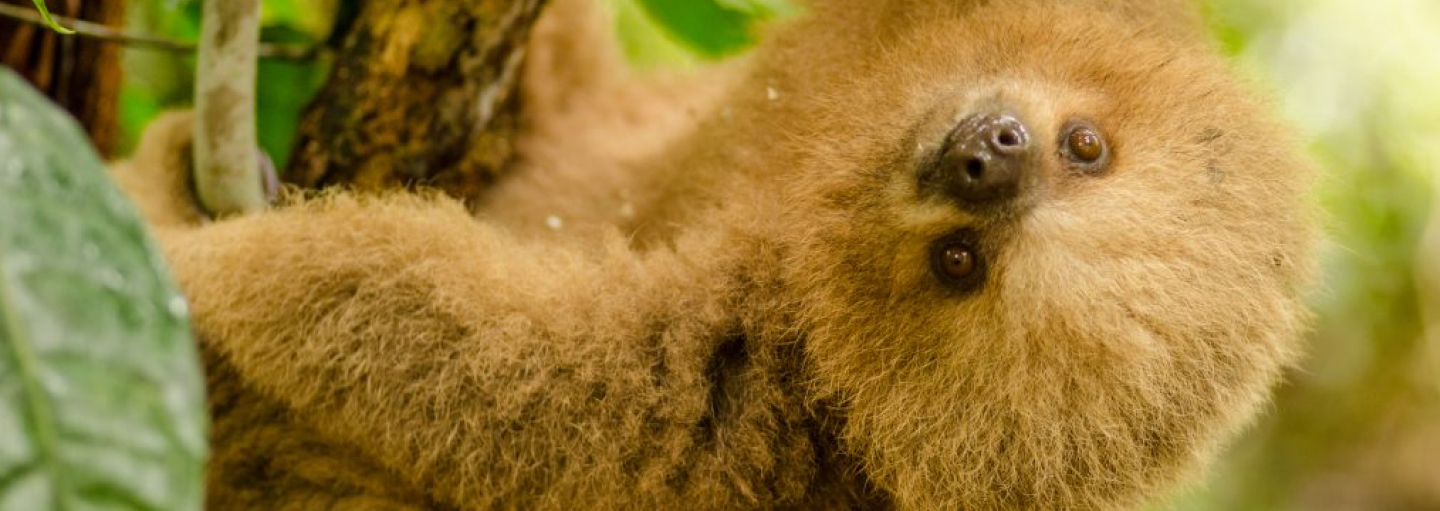Protecting a Biological Hotspot from Mining
05/19/2021
Strategic Area:
Water - Wild Places -
Content Type: News
Country:
Ecuador -
People from Yacuambi, Ecuador, dreamt of protecting their forest home from mining and other destructive activities for nearly thirty years. Thanks to donors like you, this dream just became reality!
The Ministry of Environment, Water, and Ecological Transition of Ecuador recently declared 73,917 acres of Yacuambi Ecological Reserve as a Decentralized Autonomous Protected Area. This national status provides the reserve with the highest level of legal protection in the country and permanently prevents mining in the area.
Yacuambi sits in the Ecuadorian Andes, a region known for its remarkable biodiversity and water resources. However, gold deposits lie beneath its forests and paramo grasslands, making this area a target for mining projects.
Angel, from the Kichwa Saraguro community in Yacuambi, has been defending this special place against mining for years. Growing up, he experienced the devastating effects of mining, including fragmented forests, divided communities, and unsafe water.
He and his community secured some protections for Yacuambi when it was established as an Ecological Reserve in 2012. However, the area still required a national protected status to permanently prevent all mining activities.
With help from caring people like you, part of Yacuambi Ecological Reserve has finally been incorporated into Ecuador’s National System of Protected Areas! The newly upgraded Yacuambi Decentralized Autonomous Protected Area (Yacuambi DAPA) permanently prevents mining in the area, ensuring safe water for 7,900 people like Angel.
Yacuambi DAPA connects paramo grasslands and the tropical Amazon rainforest in southern Ecuador. Its diverse habitat is home to an abundance of wildlife including the dwarf red brocket (Mazama rufina), red howler monkey (Alouatta seniculus), and northern pudu (Pudu mephistophiles).
Adjacent to Podocarpus National Park, the area fills an unprotected gap between the Yacuambi- Podocarpus and the Sangay-Podocarpus connectivity corridors. In linking protected areas, Yacuambi DAPA establishes habitat connectivity that is essential for the survival of such far-ranging and charismatic species as the endangered mountain tapir (Tapirus pinchaque) and vulnerable spectacled bear (Tremarctos ornatus).

Yacuambi DAPA also protects important water supplies from mining, unsustainable agriculture, and other threats. The area’s forests and paramo grasslands maintain sources of water for thousands of people living in nearby cities and communities, including Kichwa and Shuar indigenous communities.
“The natural ecosystems of Yacuambi ensure life,” says Trotsky Riera, a local conservationist at Nature and Culture International. “They provide us with fresh, clean water, help us mitigate and adapt to climate change, and are home to many species that only live there. By protecting these ecosystems, we are protecting our water and plants and animals that do so much for us.”

The declaration of Yacuambi DAPA is a result of more than ten years of collaboration between the local government, the Ministry of Environment, Water, and Ecological Transition, local institutions, and local and indigenous communities. Thanks to funding from Andes Amazon Fund and generous people like you, Nature and Culture has provided technical and financial support since 2019.
“The declaration of [Yacuambi DAPA] is great news. It follows many years of hard work, successes, and failures, and reflects the community, local governments, and the national government’s joint commitment to protect biodiversity,” says Angel. “With this declaration, we will protect [Yacuambi’s] natural resources for current and future generations.”
With your help, Nature and Culture will support sustainable management in Yacuambi DAPA for lasting and effective conservation impact. Management activities include installing signage, providing equipment and training for local rangers, and implementing wildlife monitoring and ecotourism projects.
Thank you for making this achievement possible! We hope that this bit of good news inspires you to continue fighting for nature and culture.
Did you hear about the new conservation area in South America’s Grand Canyon? Learn about Bosques Secos del Marañón Regional Conservation Area here.




